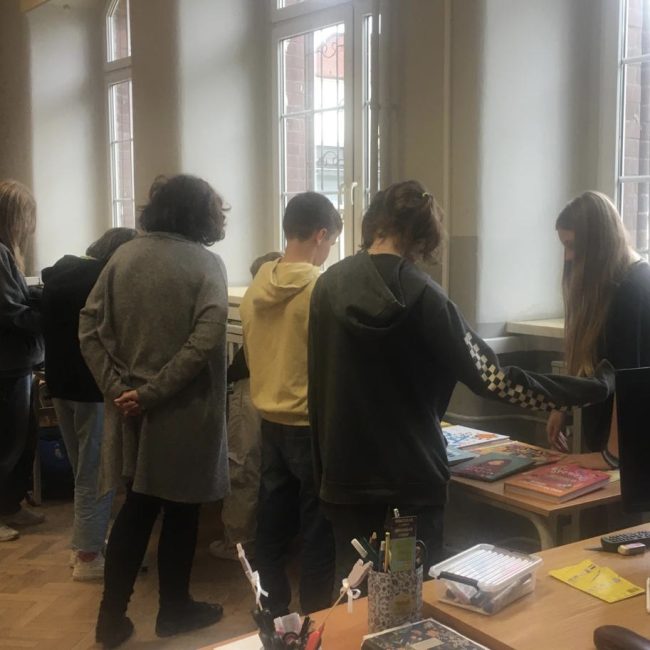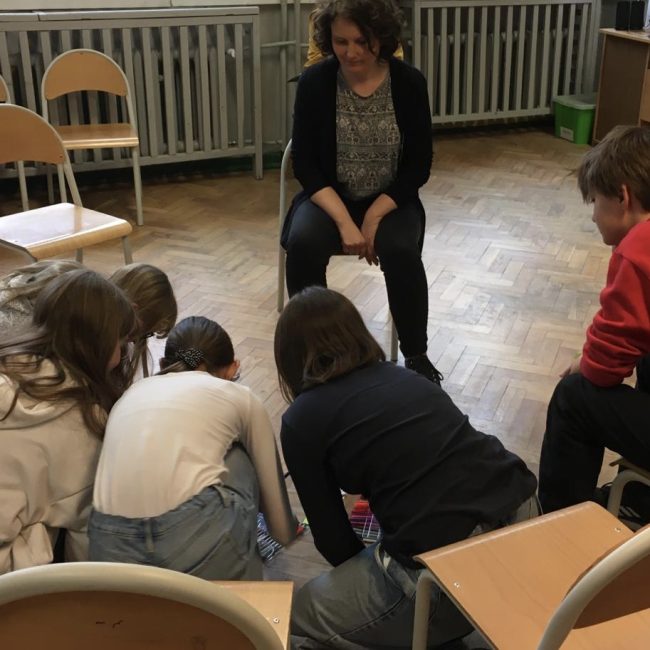Human rights education teacher training
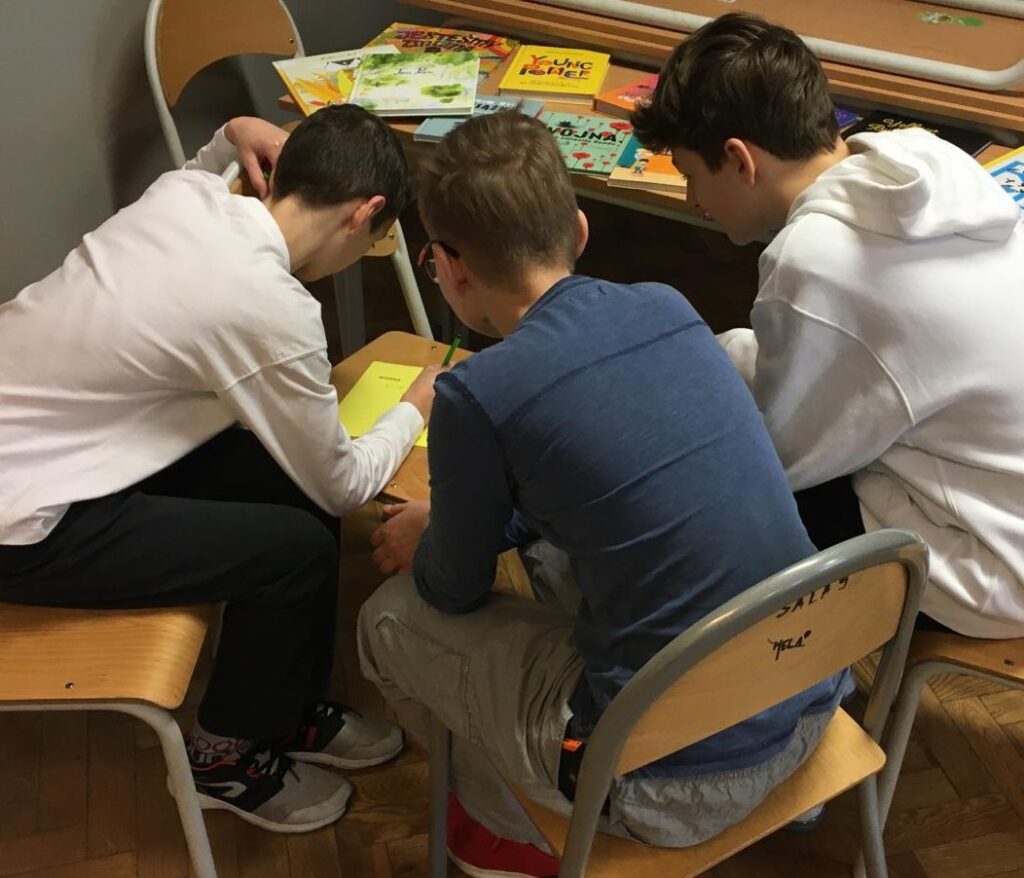
Human rights education (HRE) is for everyone and is vital to the realisation of rights.
One of the core aims of Seen and Heard: Young People’s Voices and Freedom of Expression is to mobilise freedom of expression as a human right among young people.
Working with our partners at Amnesty International Poland we will be delivering teacher training on human rights education, alongside a children’s book on these themes.
HRE and teaching - aims and focus
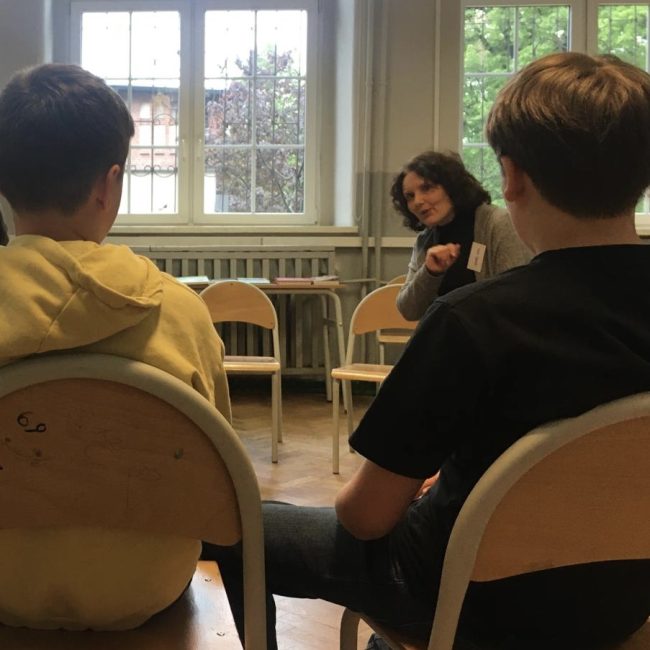
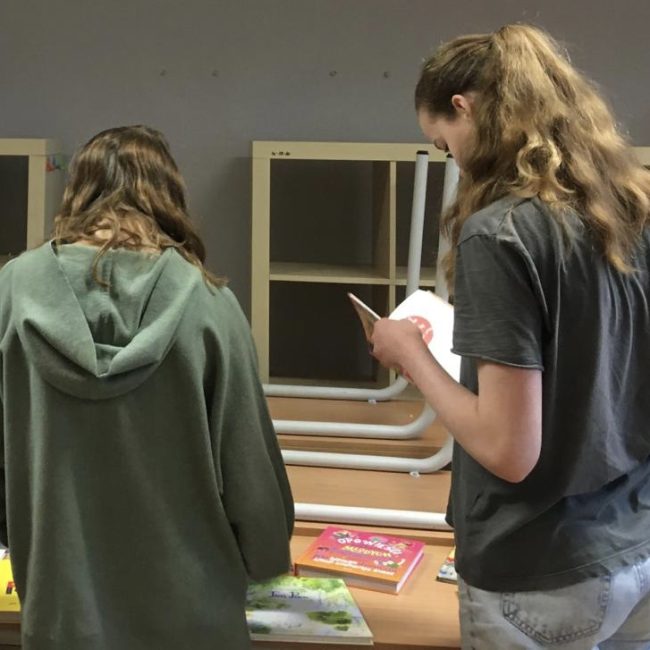
Aims and dimensions
As one of the core aims of Seen and Heard: Young People’s Voices and Freedom of Expression is to mobilise freedom of expression as a human right among young people, our partners at Amnesty International Poland will be delivering teacher training on human rights education, alongside a children’s book on these themes.
The training directly complements our co-production of creative protests with young people as well as gives educators close to them the care-full opportunity to comprehend that human rights are not set in stone – they need to be understood and defended for people to thrive.
Human rights education (HRE) is for everyone, children and adults alike, and is vital to the realisation of rights. After all, it is extremely difficult to stand up for ourselves and each other in difficult situations if we do not known our rights.
Various international treaties assert this. They include the 1948 Universal Declaration of Human Rights (UDHR), which says that the right to education ‘should strengthen respect for human rights and fundamental freedoms’. The UDHR was a coming together of world leaders and thinkers saying ‘never again’ after the horrors of World War Two and the Holocaust. It offered hope and a lifetime of legal protection to everyone, from birth to death. It is rooted in universally shared values such as truth, fairness, safety and equality.
The 1989 UN Convention on the Rights of the Child obliges all ratifying governments (including those of Poland, Malta and Germany) to educate everyone about children’s human rights. In 2004, the General Assembly of the United Nations proclaimed the World Programme for Human Rights Education (2005-ongoing).
There are three vital dimensions to HRE:
- Knowledge and skills about human rights (learning about the treaties, standards and principles and how to incorporate them into daily life),
- Values and attitudes through human rights (actively practising them in our daily lives with mutual respect),
- Behaviour and action for human rights (standing up for our own and other people’s rights).
HRE is a lifelong learning process that helps us respect and stand up for each other. It provides invaluable tools to oppose injustice and discrimination at every level, from the playground to government.
Teacher training on HRE
Amnesty International Poland’s HRE team will provide training for teachers on human rights. We will equip teachers with the necessary tools and knowledge to address this topic in the classroom in a safe and inclusive way.
Young people today are growing up in a challenging world that often feels very unsafe. They are bombarded daily with images and words that may cause severe mental and physical health problems. It is hard for them to distinguish the truth from fake news, and to accurately inform themselves. Thus is it is crucial for teachers to understand how to navigate different political contexts and consequences.
We will explore the principles of HRE, not only imparting knowledge about human rights documents and principles but also demonstrating how to actively practice and promote human rights in daily teaching practices.
Our approach is deeply rooted in inclusivity and respect, ensuring that no young person is overlooked. We support teachers to foster an enriching culture of respect, equality and diversity in their classrooms.
We will support teachers to encourage their students’ critical thinking and questioning skills, which help to identify truth versus mis- or disinformation. Armed with these skills, the young people can decide what matters most to them and work out if there is a need for creative, peaceful protest. We will also provide safeguarding advice on how to identify and mitigate the possible risks of speaking out.
Focus
Our training will focus on the UN Convention on the Rights of the Child, which states in Article 13 that,
‘The child shall have the right to freedom of expression; this right shall include freedom to seek, receive and impart information and ideas of all kinds, regardless of frontiers, either orally, in writing or in print, in the form of art, or through any other media of the child’s choice.’
Additionally, Article 15 says,
‘States Parties recognize the rights of the child to freedom of association and to freedom of peaceful assembly.’
